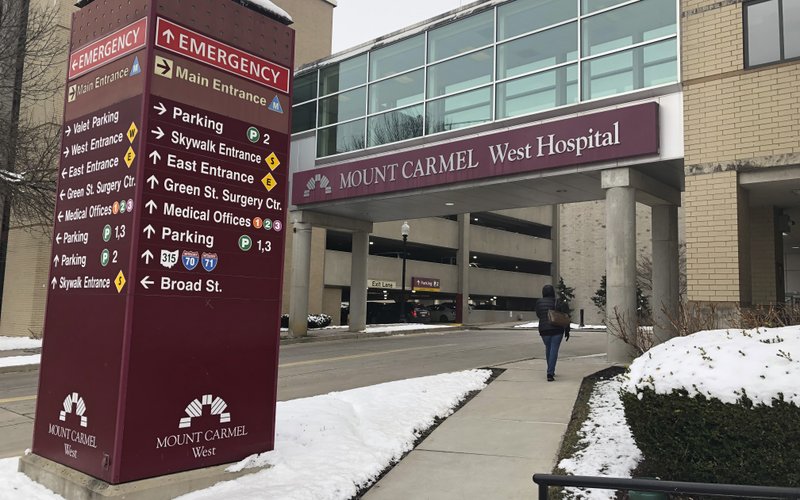An Ohio doctor and the hospital he worked for before he was fired now face at least 22 wrongful death lawsuits over drug doses that the families and attorneys of the patients who overdosed said were excessive.
The latest lawsuits were filed recently and concern the deaths of three patients: Corrinnia Blake, 55, in September 2018; Lora Stone, 78, in May 2017; and Thelma Kyer, 83, in March 2017. The suits are filed against the Mount Carmel Health System and former employee Dr. William Husel according to The Associated Press.
Lawyers in the latest suits said that Husel ordered excessive doses of the painkiller fentanyl to be administered to the women, leading to their deaths.
Attorneys for Stone’s family said she was admitted for nonlife-threatening stomach pain and transferred to the ICU. Attorneys said Husel ordered a “grossly inappropriate” dose of fentanyl for the patient and she died within minutes of it being administered, reported Fox 28.
Attorneys for Blake said she had nonlife-threatening abdominal pain but was transferred to the ICU and given 500 micrograms of fentanyl and 6 milligrams of Versed.
A friend of Blake’s said that she would still be alive today if the fatal dose hadn’t been administered.
“Corrinnia was a good person and I believe like I said today if she didn’t die that way, she probably would be still living,” the friend told ABC 6.
The friend said she visited Blake in the hospital shortly before the death and openly worried about Blake’s condition.
“I said, I asked the doctor again, I said, ‘What is going on? What is wrong with her?’ he said we just gave her something to make her comfortable,” said the friend.
She returned the next day to find her friend gone. “I walked in the room and they were all sitting around, and I said, ‘Where’s Corrinnia?’ and they said she passed, and I said ‘She what? I just saw her,’ and they said she passed,” she said.
Three more patient death lawsuits filed against Mount Carmel, former Dr. William Husel @JoAnneViviano https://t.co/jt71Qb7stJ
— BreakingNewzman (@BreakingNewzman) February 20, 2019
The suits came after the CEO of the health system said officials have identified at least 35 patients who were given excessive drug doses under Husel, including 29 who received a potentially fatal dose. In a video, Edward Lamb said the hospital is continuing to investigate whether the patients were given excessive doses when there was still an opportunity to treat them.
The hospital previously said that Husel and staff “made poor decisions.”
The latest suits also came after Michael Rourke, an attorney for the family of 75-year-old Rebecca Walls, filed a suit in early February.
He said that Walls was one of three patients who died after the hospital learned of allegations about Husel’s patient care.
“The idea that there were three more deaths after that investigation started … that’s really mind-boggling,” Rourke told WBNS. He said Walls was given 1,000 micrograms of fentanyl and 10 milligrams of Versed.
“That was like throwing gas on a fire,” Rourke said. “She died within five to ten minutes. They just killed her.”
JUST IN: Lawyers plan to file 20th wrongful death lawsuit against Mount Carmel and William Husel, on behalf of Brandy McDonald.
McDonald is the youngest patient identified so far. https://t.co/bUzRM2tnoe
— WOSU News (@wosunews) February 25, 2019
Another Patient Identified as Doctor Seeks Hearing
More suits could be on the way, including one from the family of Brandy McDonald.
Her family said that the 37-year-old cancer patient was given a fatal dose of fentanyl by Husel in 2018.
The family plans to sue Husel, the health system, a registered nurse named Jamie Bourke, and a registered pharmacist named Talon Schroyer, reported ABC 6.
McDonald is the youngest patient identified so far among the suits. To date, 24 of the 35 patients who died in Husel’s care have been identified.
Meanwhile, Husel has requested a hearing before the State Medical Board of Ohio, reported WCMH. The medical board suspended his license on Jan. 25.
Before the suspension, Husel appeared before board members but declined to answer most of the questions they asked, citing his fifth amendment right against self-incrimination.

